Filter by
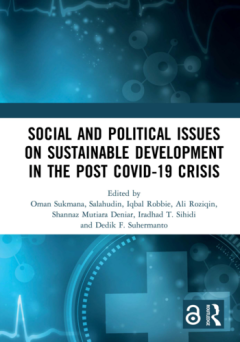
Social and political issues on sustainable development in the post covid-19 c…
As a threat, a pandemic has indirect implications for social, economic and political conditions both at domestic and international levels. Thus, collective and comprehensive efforts are needed in responding to and preventing the expansion of infections caused by the virus, including Covid-19. This international conference provides the discourse on social, economic as well as political issues re…
- Edition
- -
- ISBN/ISSN
- 9781003263586
- Collation
- xiv, 367 p. : ill
- Series Title
- -
- Call Number
- 338.9598 SUK s
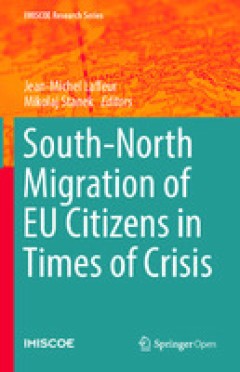
Outh-north migration of eu citizens in times of crisis
The global fi nancial and economic crisis has been hitting the European Union severely since 2008. Although the economic crisis began in advanced economies and then spread all over the globe, its impact and implications are far from being equally distributed geographically. This is particularly visible within the European Union. While some countries, mainly in the North,…
- Edition
- -
- ISBN/ISSN
- 9783319397634
- Collation
- 224 p.
- Series Title
- -
- Call Number
- 304.8. MIKO o
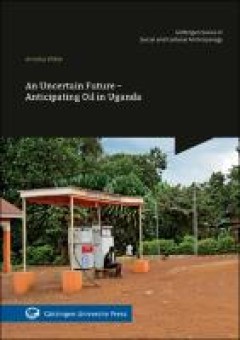
An uncertain future : anticipating oil in Uganda
The discovery of oil in Uganda in 2006 ushered in an oil-age era with new prospects of unforeseen riches. However, after an initial exploration boom developments stalled. Unlike other countries with major oil discoveries, Uganda has been slow in developing its oil. In fact, over ten years after the first discoveries, there is still no oil. During the time of the research for this book between 2…
- Edition
- -
- ISBN/ISSN
- 9783863953607
- Collation
- 277 p. : ill.
- Series Title
- -
- Call Number
- 330 WIT a
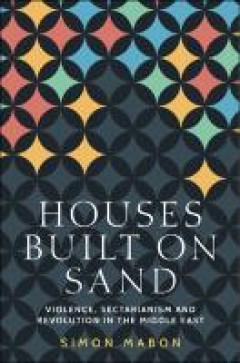
Houses built on sand : violence, sectarianism and revolution in the Middle East
The events of the Arab Uprisings posed an existential challenge to sovereign power across the Middle East. Whilst popular movements resulted in the toppling of authoritarian rule in Tunisia, Egypt and Yemen, other regimes were able to withstand these pressures. This book questions why some regimes fell whilst others were able to survive. Drawing on the work of political theorists such as Agambe…
- Edition
- -
- ISBN/ISSN
- 9781526126474
- Collation
- x, 266 p. : ill.
- Series Title
- -
- Call Number
- 303.48330956 MAB h
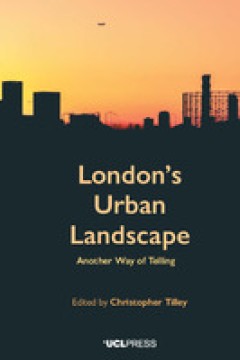
London's urban landscape : another way of telling
London’s Urban Landscape is the first major study of a global city to adopt a materialist perspective and stress the significance of place and the built environment to the urban landscape. Edited by Christopher Tilley, the volume is inspired by phenomenological thinking and presents fine-grained ethnographies of the practices of everyday life in London. In doing so, it charts a unique perspec…
- Edition
- -
- ISBN/ISSN
- 9781787355583
- Collation
- xxi. ;ill. :458 p.
- Series Title
- -
- Call Number
- 307.760941. CHR l
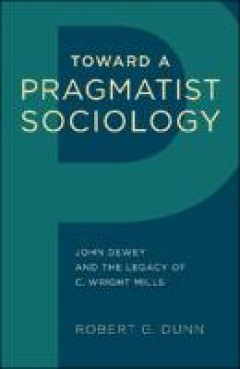
Toward a pragmatist sociology : John Dewey and the legacy of C. Wright Mills
In Toward a Pragmatist Sociology, Robert Dunn explores the relationship between the ideas and principles of philosopher and educator John Dewey and sociologist C. Wright Mills to provide a philosophical and theoretical foundation for the development of a critical and public sociology. Dunn recovers an intellectual and conceptual framework for transforming sociology into a more substantive, comp…
- Edition
- -
- ISBN/ISSN
- 9781439914618
- Collation
- ix, 203 p. : ill.
- Series Title
- -
- Call Number
- 301.01 DUN t
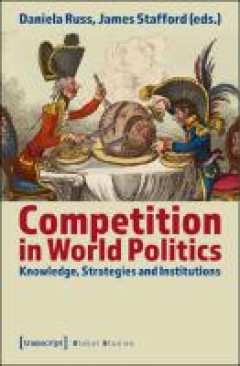
Competition in world politics : knowledge, strategies and institutions
The »return of great power competition« between (among others) the US, China, Russia and the EU is a major topic in contemporary public debate. But why do we think of world politics in terms of »competition«? Which information and which rules enable states and other actors in world politics to »compete« with one another? Which competitive strategies do they pursue in the complex environme…
- Edition
- -
- ISBN/ISSN
- 9783839457474
- Collation
- 306 p.
- Series Title
- -
- Call Number
- 300 RUS c
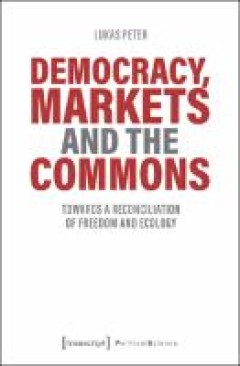
Democracy, markets and the commons : towards a reconciliation of freedom and …
How can we overcome the existing political, economic, and ecological crises that humanity faces? With the notion of the commons, Lukas Peter argues that this form of social organization can provide answers to the shortcomings of centralized states and open and competitive markets. By building on and going beyond the work of Elinor and Vincent Ostrom, he develops an ecological understanding of t…
- Edition
- -
- ISBN/ISSN
- 9783839454244
- Collation
- 334 p. : ill.
- Series Title
- -
- Call Number
- 300 PET d
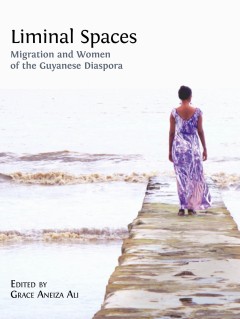
Liminal spaces : migration and women of the Guyanese diaspora
Liminal Spaces is an intimate exploration into the migration narratives of fifteen women of Guyanese heritage. It spans diverse inter-generational perspectives – from those who leave Guyana, and those who are left – and seven seminal decades of Guyana’s history – from the 1950s to the present day – bringing the voices of women to the fore. The volume is conceived of as a visual exhibi…
- Edition
- -
- ISBN/ISSN
- 9781783749898
- Collation
- xiv, 211 p. : ill. ; 24 cm
- Series Title
- -
- Call Number
- 304.808209881 LIM l
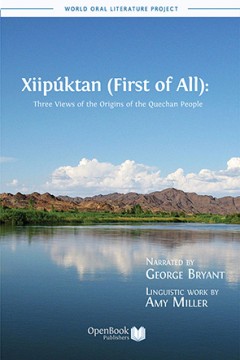
Xiipúktan (first of all): three views of the origins of the Quechan people
The Quechan people live along the lower part of the Colorado River in the United States. According to tradition, the Quechan and other Yuman people were created at the beginning of time, and their Creation myth explains how they came into existence, the origin of their environment, and the significance of their oldest traditions. The Creation myth forms the backdrop against which much of the tr…
- Edition
- -
- ISBN/ISSN
- 9781909254411
- Collation
- 210 p. ; 24 cm
- Series Title
- -
- Call Number
- 973.0497 BRY x
 Computer Science, Information & General Works
Computer Science, Information & General Works  Philosophy & Psychology
Philosophy & Psychology  Religion
Religion  Social Sciences
Social Sciences  Language
Language  Pure Science
Pure Science  Applied Sciences
Applied Sciences  Art & Recreation
Art & Recreation  Literature
Literature  History & Geography
History & Geography